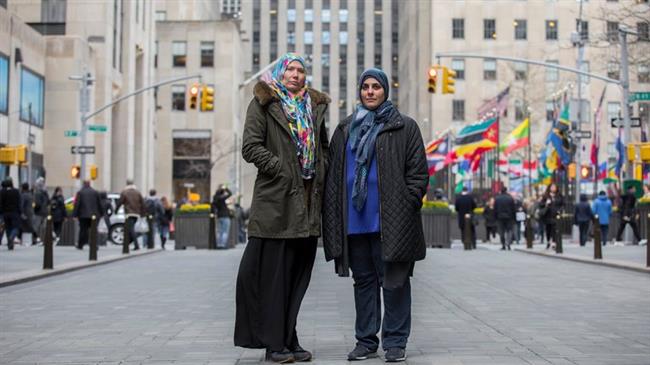
RNA - The women, Arwa Aziz and Jamilla Clark, filed the lawsuit on Friday. The two women were arrested separately in unrelated incidents last year.
Turning Point for Women and Families, a non-profit organization based in New York that supports Muslim women and girls who have been victims of domestic violence, joined the lawsuit.
The suit seeks unspecified financial damages and for the NYPD to discontinue its practice.
A 2015 NYPD policy requires that booking photos have an unobstructed view of the subject’s head, face and ears, requiring the removal of any headwear.
The plaintiffs contend that policy violates the women’s freedom of speech, the Religious Land Use and Institutionalized Persons Act and New York state law.
The lawsuit alleged that in January 2017, an NYPD officer took a post-arrest photo of Clark as she wept and begged to put her hijab back on.
Clark, who lives in the neighboring state of New Jersey, was arrested after her ex-husband complained that she had violated an order of protection. She faces a hearing on April 16.
“Like many Muslim women whose religious beliefs dictate that they wear a hijab, Ms Clark felt exposed and violated without hers — as if she were naked in a public space,” court documents said.
Another police officer openly ridiculed the Muslim faith, according to the lawsuit.
Muslim American women gather for a World Hijab Day rally held in front of New York City Hall in Manhattan, February 1, 2018. (Photo by Reuters)
In August 2017, New York resident Aziz was arrested after her sister-in-law obtained a protective order against her on what Aziz said in the lawsuit were false pretenses.
While in custody, Aziz begged officers to allow her to push her hijab back slightly to expose her hairline and ears for the post-arrest photo. “Frantic, weeping and bareheaded in a hallway full of men who do not belong to her immediate family, Ms. Aziz felt broken,” the lawsuit said.
The number of Islamophobic incidents in the United States has spiked following the election of President Donald Trump, according to the Council on American-Islamic Relations (CAIR), a leading Muslim advocacy group.
Critics say that Trump’s rhetoric and policies against Muslims before and after his election has emboldened far-right groups and promoted anti-Muslim hate crimes across the country.
Some scholars say Trump’s travel ban on people from several Muslim-majority countries was aimed at spreading Islamophobia and demonizing Muslims.
847/940